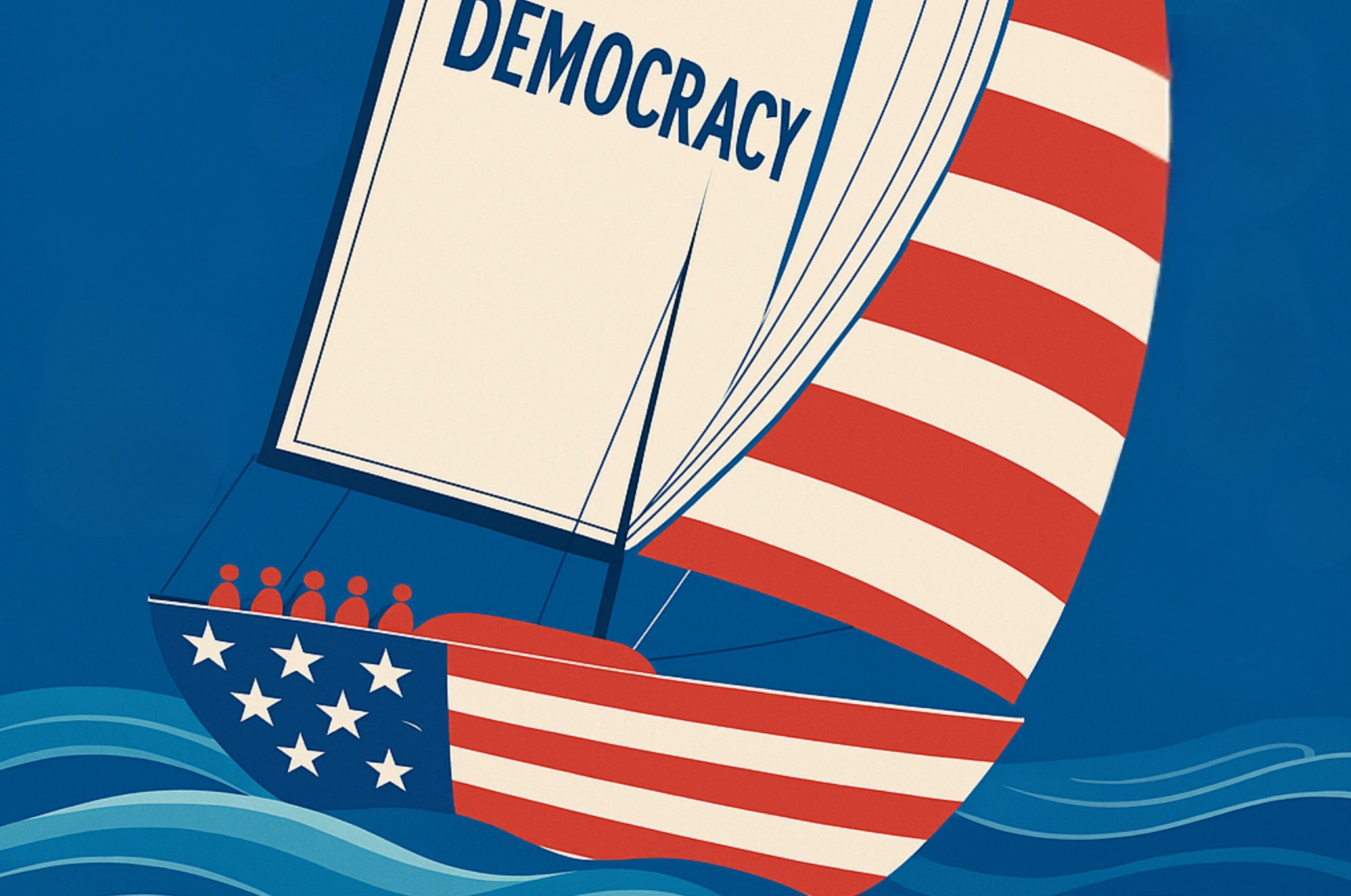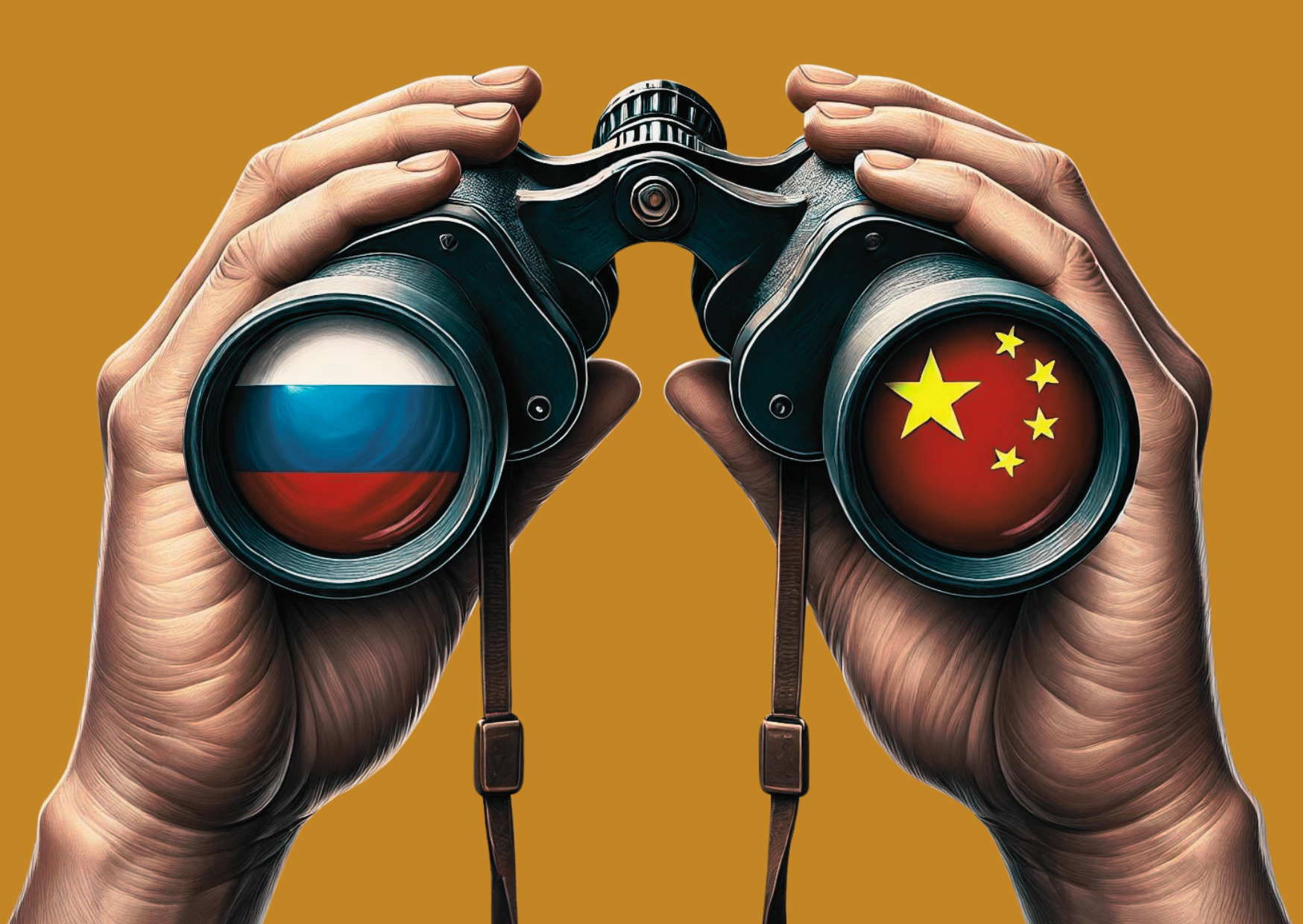









The strengthening alliance between Russia and China is creating a new era of multipolarity. Economic cooperation and strategic moves are challenging US hegemony.
JUNE 29, 2024

Just a few weeks ago, the international arena witnessed the leaders of two dark horses of the global order, Russia and China, have a diplomatic, say even a friendly discussion on various topics such as creating the multipolar world, core interests such as trade, military exercises, cultural exchange. Over tea and friendly banter, they are adamant about allying against the Western bloc by rejecting “unilateralism, hegemonism, bloc-formation.” Thus, one thing is conspicuous: The China – Russia bilateral relationship is here to stay and thrive for at least quite a few years.
On May 16th of this year, Russian President Vladimir Putin was welcomed by Chinese President Xi Jinping at the Great Hall of People in Beijing. He released a joint press statement, solidifying their tight-bound allyship Putin’s two-day visit to the Land of Dragons, his first trip abroad after the start of his sixth term, with them meeting more than forty times. During this trip, he also visited Harbin, the capital of Heilongjiang province, which housed Russian ex-pats and the legacy of old-school Russian architectural marvels such as the former Eastern Catholic church and the central St. Sophia Cathedral.
Meeting the students at the Harbin Institute of Technology, notorious for defense research and its extensive work with the People’s Liberation Army, he introduced a joint-school program with the University of Petersburg, his alma mater, honoring the relationship he acquired with the city. In the meeting, where both the leaders referred to each other as “old friends” and “close friends.”, emphasis was placed on the seventy-five-year-old diplomatic relations of Russia-China, highlighting intergovernmental, inter-agency cooperation to inject “new, strong impetus” into Russia-China relations.
They signed ten documents, including the Joint Statement of the People’s Republic of China-Russia, on deepening the Comprehensive Strategic Partnership of Co-ordination for the new era of bilateral relations. They take Umbridge in the latest, a rising form of international and neighborly relations through the commitment of five essential principles: mutual respect and support of fundamental relations and core interests; upholding non-alliance and non-confrontation, reciprocal benefit and, economic co-operation and supply chain stabilization being the driving force along with the intricate weaving of cultural exchange; to take up the global arena but collaboration in global governance through international/regional organizations such as BRICS, UN, APEC and SCO (BRICS is taking steps to lessen the dominance of the US Dollar) and to emulate the true essence of multilateralism and commitment to justice and political neutrality of global problems specifically Israel- Palestine conflict through a two-state solution. Both countries are headstrong in acquiring a transparent potential settlement for the Ukraine issue following the UN Charter and holding sovereignty and territorial integrity in reverence, thus building a secure, stable, and sustainable security architecture. However, China’s previous shifting statements stated neutrality and respect for Ukraine’s sovereignty while providing indirect weaponry to Russia, which is confusing to deduce China’s true intention regarding Russia.
It is safe to say that the Russia-China relationship has blossomed into a force to be reckoned with despite its avid critics. China and Russia cannot be considered as a symbiotic but a borderline commensalism relationship where China is Russia’s only open ally amidst its isolated status due to the Ukraine War. Anthony Blinken, US Secretary of State, called the bilateral relationship a “marriage of convenience.” and threw a shot at Russia by calling it “the junior partner in this relationship.”
Maybe it’s true. China is one of the superpower nations that Russia relies heavily on for trade and military support, causing a jump in trade after the Ukraine crisis, hailing a destination for many high-end manufacturing products, and one-third of Russian cars sold in China. In turn, China has been completely benefitting economically from ties with Russia, exporting crude oil and gas to the extent that it has replaced Saudi Arabia as China’s most prominent oil supporter. Seeing that energy security is a critical factor in China’s development endeavors, Russia is a crucial element in mobilizing economic development. Their two-way trade has increased by 2.7 percent by 240 billion USD. Moreover, China also provides Russia ammunition indirectly by providing machine tools, microchips, drones, turbo-jet engines, etc.
Just days before the Russia-Ukraine War broke out in February 2022, during the opening of the Winter Olympics with Russian troops closing in on the Ukraine border, China acknowledged their partnership “with no limits” and outwardly called the shots on the “NATO expansion” of Russian territory along with the global hegemony that the US exerts on other countries, thus pledging for a new wave of power. China officially remains neutral in the conflict and puts negotiation and diplomatic solutions at the forefront, to the extent that Vladimir Zelensky, the Ukrainian president, wants China to attend the peace talks in Switzerland next month to find a peaceful solution for the Ukraine crisis. This implies China’s sway over Russia, while Xi claimed it supports Ukrainian sovereignty through a phone call.
China carefully plays the long game of geopolitics so that the global arena always anticipates its next move. Before Putin visited China, Xi went on a tour of Europe and also met Anthony Blinken to discuss and negotiate the bumpy differences between the two superpowers. US’s comments during the meeting were cordial, such as increased bilateral diplomatic talks and cooperation, including in military communication, counter-narcotics, and AI risk management, fostering a reliable, stable line of communication.

Alas, the US is still sour on China’s Russian association since the US feels that Russia is “the West’s biggest security threat since the Cold War,” as well as a plethora of issues such as Taiwan, South China, human rights violations, and production of fentanyl. But right now, it is headstrong in ensuring that China doesn’t provide any more ammunition to Russia since it is aware that China is the primary military and economic ally in the War, and targeting Chinese support would wither the Russian front both financially and in the war ground itself. One of America’s core interests is trans-Atlantic security, which is surging China to push Russia to stop the war; if not, they will.
It is also keen on China’s relationship with Iran since China, Iran, and the broader Middle East have a blossoming yet irregular relationship through economic and security platforms. America wants China to discourage Iran and its proxies from “expanding the Middle East conflicts.” They also discussed the maritime security issues around the South China Sea and Taiwan. In this circumstance, Beijing may not be sold on the idea of cooperation since just during April, the Philippines and the US conducted their most extensive combat exercises near the South China Sea, trying to assert dominance over China. In turn, China is ready to open for cooperation rather than “engage in vicious competition” and does not want the US to snoop in on its internal sovereign affairs.
This clearly states the distance between the two parties, as the meeting did not have all smiles; latent tensions were still boiling. The Chinese foreign minister Wang commented that despite the diplomatic effects, negative tensions still linger amid the bilateral relations. They believe that China’s developmental rights in the case of the South China Sea and Taiwan are not respected by Western geopolitics. In addition, significant economic sanctions on Chinese products and the banning of TikTok are causing drifts in creating a solid foundation for a stable China-US relationship.
Moving that aside, one of the significant quarrels of the US about China would be the accelerated degree of bilateral relations that China keeps with Russia. It believes this strengthened bond would cause unprecedented changes to the already shaky US hegemony. The mega-power insists on checking Russia’s advancements in Ukraine through Chinese resources and China’s development through Russia’s resources. Years ago, as mentioned before, people were skeptical of the alliance because of the assumed power asymmetry between China and Russia. Still, it is interesting that the US is deliberately ensuring that China stays away from Russia.
However, what is raising everyone’s eyebrows is, again, China strategically playing around with cracks in the global order, in this case, Xi’s attempts to form relations with European nations. On his first post-pandemic visit, he met the French president, Emmanuel Macron, and European Commission President Ursula von der Leyen, and he lauded their newfound cooperation. However, it was not the friendliest of meetings. Even during that meeting, Xi Jinping had to clear the air regarding its Russian associations, saying it was only trying to create peace in Ukraine and negating its industrial “overcapacity.” France is an avid critic of China, with a history of open dissent to China and selling arms to Taiwan. It has entered an inter-theatre cooperation and dialogue mechanism in its naval and air forces.
Countries like India and Japan, which have close and long-lasting ties with France, are not on board with this newfound relationship. India and Japan, specifically India’s ties with China, are shaky, with border problems and tensions rising between the two countries. Thus, both of them are disturbed by this unforeseen allyship. It is uncertain comprehend France’s true intentions: maybe it can be a move to increase its gains, but it certainly feels double-sided since France’s past insistence on safeguarding human rights and its ties with other countries who are anti-China may cause some intricate problems to France in the coming future. More than that, many different European countries have taken a staunch anti-Russian stance; one of the main reasons would be the Ukraine War and Russia’s obvious threat to European security.
Another interesting turn of events would be Russia’s association with Serbia and Hungary. Instead of the awkward handshakes, Serbian President Aleksandar Vucic and Hungarian Prime Minister Viktor Orban welcomed Xi Jinping with people waving festoon flags. The Chinese media called the relationship “ironclad,” with all three countries releasing a joint statement about joining China in a community “with a shared future.” Both the Serbian and Hungarian presidents are interested in creating an alliance with China, with Serbia signing a free-trade agreement. In contrast, Hungary signed eighteen joint agreements with China covering IT, railway, and nuclear energy. Xi is ecstatic about this new relationship, saying, “deepen economic, trade, investment, and financial cooperation,” including the Budapest-Belgrade railway.
China hopes that the association with Hungary and Serbia would erode the massive economic sanctions that other European countries have imposed on it while creating a strategic space for smooth “China-EU” relations. Both countries have become important hubs for China’s economic investment: they are the key production hub of Chinese Electric Vehicles (EV) and other automotive parts, with China opening a new factory in Hungary. Moreover, association with European countries gives an edge to China, producing an assumption that there are “cognizant” EU countries trying to form alliances with China irrespective of the domestic/regional countries’ defensive policy against it and highlighting interest-based cooperation rather than looking into the geopolitics of it.
Other EU countries, again, are not in favor of this alliance. Moreover, the Hungarian president’s stringent conservative politics, lining up with the China association, is not good optics for the EU. Furthermore, this meeting implies that not all EU countries do not have complete cohesion within themselves. Neighboring countries such as India are also not on board with China-Russia relations since, as mentioned before, India-China relations lie on unstable ground due to the border issues near Ladakh and Arunachal Pradesh. In the above cases, Russia has been a common denominator in how other countries wish to pursue a relationship with China. However, it is not an official alliance since both countries have agendas: Russia is close with India, Vietnam, and Indonesia and does not agree with China on Taiwan. At the same time, the former keeps stating neutrality on the Ukraine War.
No matter the degree of formality, China-Russia bilateral traditions have been smooth sailing and probably not ready to comprise its relationship since China considers “self-sufficiency” as one of its primary goals and having each other on their teams has given both the countries the power to challenge the financial and diplomatic problems that the West sanctions them to create a non-US based order. It is not impossible, but since Russia is back and forth on its gains in the Ukraine War and needs to sort out its problems before actually joining hands with China to ensure a new multipolarity.
A curated seletion of FA’s must-read stories.
Written By: SeungHawn Kim
Written By: RIZWAN RAFI TOGOO
Written By: MARCO MENDEZ
Written By: KRISHNA ACHNAF HERINDRA
Written By: BILLY AGWANDA
Written By: SURUTHI LENIN
Written By: BERK TUTTUP
Written By: ALEXANDER BERGH

Suruthi Lenin is pursuing her Master's in English with a minor in International Relations. Her interests lie in European Studies, West Asia, South East Asian studies, Conflict and Peace, Human Rights, Geopolitics, and Intelligence and Security studies. She also loves Sociology and the Renaissance, Romantic poetry, 20th-century fiction, Poetry, Film Studies, and Art History.
Written By: BATUHAN GUNES
Written By: KRISTIN HYNES
Written By: ERIC SONG
Written By: ALEXANDER BERGH
Written By: KATE-REID SMITH
Written By: JOSEF SCHOEFL
Written By: PATRIC MCFARLAND
Written By: FATIH CEYLAN
FA’s flagship evening newsletter guilding you through the most important world streis ofthe day. Delivered weekdays.
